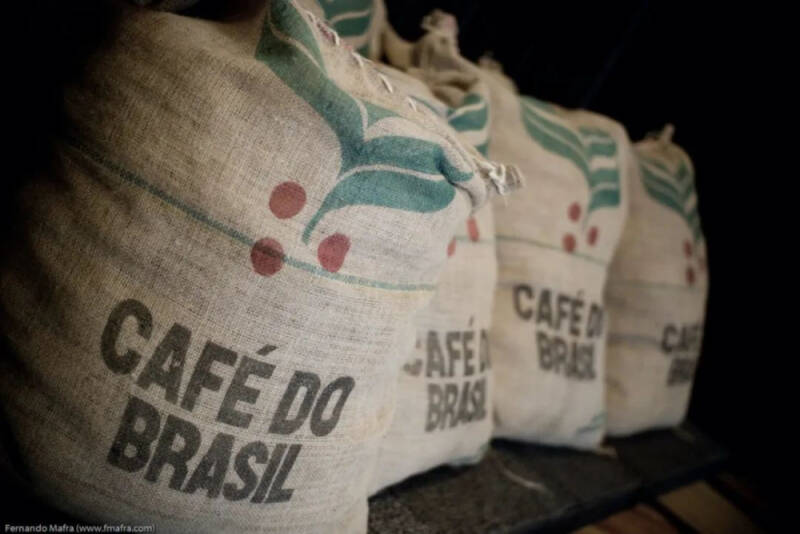The Brazilian government will sell IAC coffee experimental farmland and germplasm bank!
According to Brazilian media reports, the government of the Brazilian state of Sao Paulo recently planned to sell a plot in the state called S ã o Jos é, which is 7 hectares in size. But the move was opposed by the Brazilian Institute of Agricultural Research in Campinas (IAC) and the Association of Scientific researchers of the State of Sao Paulo (APqC), all because the land sold involved IAC's Santa Elisa farm.
Initially in August last year, the Sao Paulo Minister of Agriculture mentioned plans to sell plots, and the government intended to auction some farms and properties with high costs and limited social or economic returns, which would then be used for real estate development. According to IAC's board of directors, the government has the authority to sell the area, but there is still no announcement to provide technical advice on the transfer of plants.
It is reported that the Campinas Agricultural Research Institute (IAC) is the oldest agricultural research center in Brazil and even in the world, established in 1973 in the state of Sao Paulo. The organization focuses on the conservation, genetic research and breeding of different plants and species, including coffee, as well as the popularization of science and technology such as experimental farming and soil, and has also formed a planting base for soybeans, coffee, sugar cane and other cash crops in Brazil.
On the Santa Elisa farm in question, there are unique specimens of various coffee varieties grown by IAC and contain the oldest Arabica coffee plant population in the world, which is the largest coffee germplasm bank in Brazil and one of the largest in the world. In the experimental area of the farm, there are about 5000 "germplasm" representing different coffee varieties, many of which are rare or endangered coffee varieties that have been introduced from all over the world in recent years.
The Association of Scientific researchers of the State of Sao Paulo believes that Brazil can become a major agricultural country in the world thanks to IAC's introduction of coffee varieties and continuous research and development to find coffee varieties suitable for Brazilian environmental and climatic conditions since its establishment. In addition, many varieties grown in coffee-producing countries are also developed and released by IAC. It is said that 70 per cent of the world's commercially grown coffee varieties can be traced back to the research results of IAC institutions and have made a great contribution to the global coffee industry.
In recent years, there have also been breakthroughs in Santa Elisa Farm research, including the discovery of wild decaffeinated Arabica coffee varieties, and the current deterministic phase of research on the cultivation of "natural decaffeinated" coffee, IAC research in Brazil will be crucial for the global industry to unleash the true market potential of these varieties.
In addition, coffee production peaked in Brazil in 2020, but coffee production was severely reduced when Brazil suffered frost in 2021, when coffee prices soared by nearly 13%. But since then Brazil has been receiving continued interference from the weather, and at the beginning of this year, when Brazil suffered its worst drought in more than 70 years, Brazilian coffee production fell again, causing coffee prices to rise again. But Brazil's IAC has been studying coffee varieties that are suitable for growing in Brazil and can withstand bad weather.

In addition to the research and development of the coffee industry, the research of other crops is focused on the farm. If the farm land is sold by the government, a lot of research and development will be hindered or stopped, which is not conducive to the future development of Brazilian coffee and other agricultural industries.
For more information about coffee producing areas, please scan the code directly and follow: coffee comments.
Long press the QR code to follow:

Important Notice :
前街咖啡 FrontStreet Coffee has moved to new addredd:
FrontStreet Coffee Address: 315,Donghua East Road,GuangZhou
Tel:020 38364473
- Prev

There are no seconds for sale! The Yayoi Yayoi joint name of Xi Cha Cao was bid up by scalpers
▲ Click to pay attention| Daily Boutique Coffee Culture Magazine Coffee Workshop Recently, the joint cooperation between Kicha and Yayo Kusama, the world-renowned and most influential Japanese artist in the tea drinking industry, has been very popular and attracted the attention and discussion of a large number of netizens. It is reported that the two sides will focus on the theme of "giving the world some boobs"
- Next

Finally stubborn! Tea shop workers are rising to bear the burden of "Don't talk to me" poster
▲ Click to pay attention| Daily Boutique Coffee Culture Magazine Coffee Factory Recently, when a customer was buying drinks at a tea shop, he saw a big-character poster posted behind the employee with his back turned to him and focused on making drinks, which read,"Please don't talk to me. Answering you will affect the speed at which tiles make tea, and it will also make me feel influenced by the store.
Related
- What grade does Jamaica Blue Mountain No. 1 coffee belong to and how to drink it better? What is the highest grade of Blue Mountain coffee for coffee aristocrats?
- What are the flavor characteristics of the world-famous coffee Blue Mountain No. 1 Golden Mantelin? What are the characteristics of deep-roasted bitter coffee?
- Can I make coffee a second time in an Italian hand-brewed mocha pot? Why can't coffee be brewed several times like tea leaves?
- Hand-brewed coffee flows with a knife and a tornado. How to brew it? What is the proportion of grinding water and water temperature divided into?
- What is the difference between Indonesian Sumatra Mantinin coffee and gold Mantinin? How to distinguish between real and fake golden Mantelin coffee?
- What does bypass mean in coffee? Why can hand-brewed coffee and water make it better?
- Unexpected! Ruixing Telunsu lattes use a smoothie machine to foam milk?!
- % Arabia's first store in Henan opens into the village?! Netizen: Thought it was P's
- Does an authentic standard mocha coffee recipe use chocolate sauce or powder? Mocha Latte/Dirty Coffee/Salty Mocha Coffee Recipe Share!
- What is the difference between Vietnam egg coffee and Norway egg coffee? Hand-brewed single product coffee filter paper filter cloth filter flat solution!

